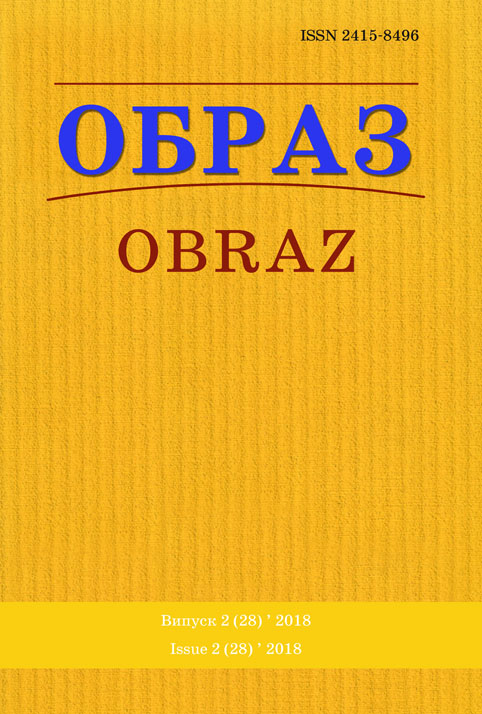Abstract
Introduction. Over the years, mass organized communication, which is impossible outside mass media, has attracted academic interest on the theoretical, methodological and practical levels. The study of prohibitions and taboos related to the «woman question» that are used in mass organized communication remains a relevant line of research. Despite their considerable social significance, the problems of prohibitions and taboos at the level of the gender component have not been comprehensively studied in academic papers.
Relevance and aim. The relevance of the research is defined by the need to study prohibitions and taboos related to the «woman question» that are used in mass organized communication. The aim of the research is to demonstrate detabooing of the «woman question» in the system of mass organized communication on the basis of mass media texts.
Methods. The choice of research methods is defined by the aim, object and subject. Comparative and descriptive methods, as well as analysis and synthesis, have been used to solve the stated tasks.
Results. In relation to the gender component, tabooing/detabooing in mass organized communication is based on prohibiting/allowing certain individuals, actions, processes, objects, conditions, topics, utterances, etc.“Women’s taboos” in Soviet-era journalistic texts include religion, undesirable information, prominent personalities of the Ukrainian history, medical conditions, women’s education, gender wage gap, fashion, women’s physicality, violence, sexual sphere, etc. Instead, modern mass organized communication has virtually tabooed female old age – women are not “allowed” to age. Labor migration of Ukrainian women is not represented in mass organized communication. Some female medical conditions and pregnancy remain tabooed or semi-tabooed. Such issues as sexual harassment; the sexual component in work promotion; domestic violence; refusals to hire pregnant women; working conditions for sex workers, etc., have not been adequately covered in mass media.
Conlusions. Detabooing in mass organized communication indicates a transformation as to the strengthening of its functions, in particular the function of spreading the knowledge about the reality.
References
1. Yelovska, Yu. V. (2007), «Taboo in the speech practice of Ukrainians» Thesis abstract for Cand. Sc. (Ukrainian language), 10.02.01, Kryvy Rih State Pedagogical University, Kryvy Rih, Ukraine.
2. Kis, O. (2000), «The problem of profanation of women’s history in Ukraine», Narodoznavchi Zoshyty, no. 5–6, pp. 711–714.
3. Orban-Lembryk, L. E. (2004), Sotsialna psykholohiia: u 2 kn. Kn. 1: Sotsialna psykholohiia osobystosti i spilkuvannia [Social psychology: in 2 books. Book 1: Social psychology of personality and communication], Lybid, Kyiv, Ukraina, available at: http://readbookz.com/book/174/5621. html, (access November 01, 2017).
4. Symakov, V. S. and Kriukovskykh, A. P. (1998), Slovar Ystorycheskykh Termynov [Dictionary of historical terms], Lyta, SPb., Russia.
5. Melnychuk O. S. (1974), Slovnyk Inshomovnykh Sliv [Dictionary of foreign words], «Ukrainska Radianska Entsyklopediia», Kyiv, Ukraina.
6. Toftul, M. H. (2014), Suchasnyi slovnyk z etyky [Modern Dictionary of Ethics], Vyd-vo ZhDU im. I. Franka, Zhytomyr, Ukraina.
7. Rusanivskyi, V. M., Taranenko, O. O. and Ziabliuk, M. P. (2004), Ukrainska mova : entsyklopediia [Ukrainian language: Encyclopedia], «Ukrainska Entsyklopediia» im. M. P. Bazhana, Kyiv, Ukraina.
8. Frэzer, D. D. (1986), Zolotaia vetv: Yssledovanye mahyy y relyhyy [Golden Branch: Exploring Magic and Religion], Polytyzdat, Moskow, Russia.
9. Kharrys, R. (2003), Psykholohyia massovikh kommunykatsyi [Psychology of Mass Communications], SPb., Russia.

This work is licensed under a Creative Commons Attribution 4.0 International License.
